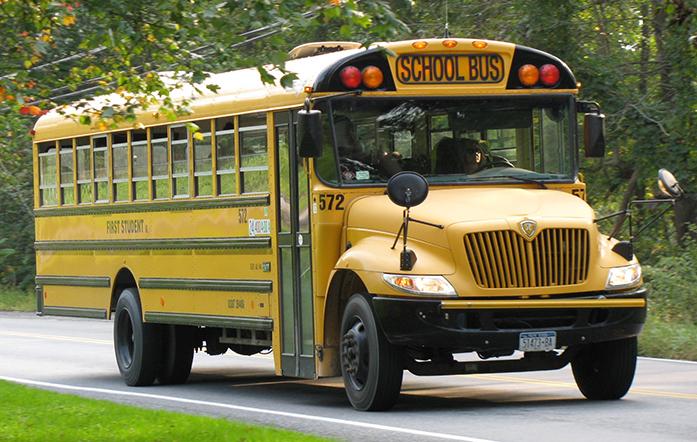Jacob Prall
[email protected]
Back in “my day,” kids didn’t have cell phones. They didn’t have access to the infinite wealth of knowledge, entertainment, and terror that is a cellular device connected to the Internet. They didn’t have the tools a modern cellular device provides, the video camera, for example. Video evidence, though not without its faults, provides a viewer with the unique perspective of witnessing what the photographer is witnessing. This perspective, when in the hands of a child, might serve to make the world aware of plights that would otherwise go unnoticed or unpunished.
The Johnston School District in the greater Des Moines area was already facing a difficult decision in its budget: to privatize busing or to not privatize busing. The costs have risen significantly, so perhaps officials could save a little here or there by turning to a third party for transportation. Then, a public school-bus driver for the Johnston district was caught on camera assaulting a child with special needs who wouldn’t sit down on his bus. Another student, cell phone in hand, recorded the event in hand. And then the kids, cell phones in hand, called 911.
In some ways, the video is actually heartening. The protests of the children around the victim are a testament to some sort of camaraderie among students that transcends age and social stigma. In most ways, however, the video is pretty horrifying. Robert Scarbrough, the driver in the video, is facing assault charges. The district hired him in August, so his run has been short-lived. Nothing in his record would have suggested the violence he brought upon the children of that bus. But with privatizing transportation already on the table, maybe this is a sign to get things moving.
There are certain benefits one might glean from using a third party to transport students. For one, if such a violent act occurred, and the parents wanted to take legal action, there’s a chance they could bring a suit against the transportation company itself rather than trying to take action against a public school district, effectively robbing them of the resources needed to serve their students. Similarly, a company in the business would have a very strict standard to uphold in order to survive. If a bus driver hits a kid and the school employs him, he gets carted off and they look for a new one. A company would have far more at stake should something like this occur. Not only would the drivers be liable, but so would their administrators. This dynamic could lead to a better, safer bus ride for all in any school district.
Ultimately, though, training should be a priority for both schools and companies looking to employ adults working closely with children. And moving forward, perhaps the complaints of whippersnappers’ technology will subside in favor of a more beneficial conversation; what can a cell phone in the hands of children do for their well-being and for the accountability of the world around them? Cell phones may often be a distraction in class, but they also offer a window of opportunity and safety to those fortunate enough to have them.









